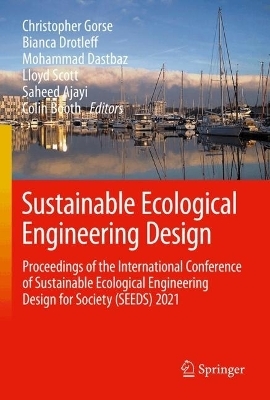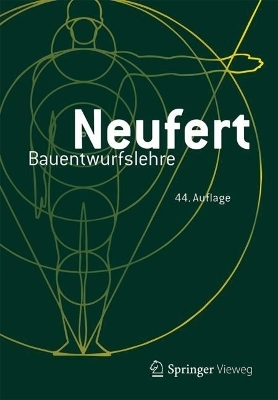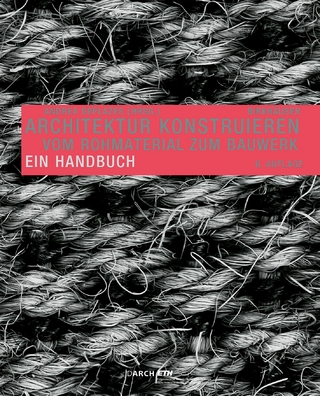
Sustainable Ecological Engineering Design
Springer International Publishing (Verlag)
978-3-031-73946-0 (ISBN)
- Noch nicht erschienen - erscheint am 17.03.2025
- Versandkostenfrei
- Auch auf Rechnung
- Artikel merken
The International Conference of Sustainable Ecological Engineering Design for Society (SEEDS) brings together global experts to focus on a sustainability agenda and the positive and detrimental changes that are taking place. Papers presented at the conference come from across a broad spectrum of the Sustainable Development Goals (SDGs) and bring forward practices to tackle the climate emergency and evaluate their impact. It addresses technical issues, measuring, monitoring, and assessing change, emphasizing the environment, infrastructure, and buildings, how they exist in relative isolation, and the possibilities for sustainable integration. The SEEDS Conference addresses the interdependence of people and the built and natural environments and recognizes the interdisciplinary and international themes necessary to assemble the knowledge required for positive change.
Christopher Gorse is Professor of Construction Engineering and Management at Loughborough University, with 35 years construction consultancy and research experience. He has written extensively in the areas of energy, sustainability, social sustainability, systems management, infrastructure, construction technology, refurbishment and management. Chris's multidisciplinary background established him as a leading authority on building quality, systems, standardisation and performance. Chris also holds Visiting Professor positions at the University of Suffolk and Central University of Technology in South Africa, engaging internationally on sustainability and lean construction. Chris is the founding Chair of the International Conference for Sustainable Ecological Engineering Design for Society (SEEDS) and past Chair of the Association of Researchers in Construction Management (ARCOM).
Bianca Drotleff is a Project Manager at the University of Cambridge Institute for Sustainability Leadership (CISL), where she helps develop new thinking and solutions for businesses to accelerate the transition to a sustainable economy that enables all people to lead healthy, flourishing lives within planetary boundaries. She also sits on IEMA's Circular Economy Steering Group, where she delivers accessible content on the topic for members. Previously, Bianca worked at the Leeds Sustainability Institute, where she coordinated the International SEEDS Conference. Before this, she worked for CSR Europe, a Brussels-based organisation, where she supported their work on the circular economy, including the EU-funded project "R2pi - tRansition from linear 2 circular", investigating circular business models. She holds an MSc in Environment and Development from the University of Leeds and a BSc in International Business and Management from the University of Bradford. Throughout her studies, her research focused on circulareconomy as a solution to reaching the net zero ambition.
Beth Jones is a Research and Project Coordinator for Leeds Sustainability Institute based within the School of Built Environment Engineering and Computing at Leeds Beckett University. Beth coordinates the annual International SEEDS Conference and supports with the editing of the proceedings and publications, including the annual series of the Sustainable Ecological Engineering Design for Society (SEEDS) Springer Nature book.
Mohammad Dastbaz is the Deputy Vice-Chancellor at the University of Suffolk. Professor Dastbaz's research work over recent years has been focused on the use and impact of emerging technologies in society, particularly learning, training and the development of "eGovernment." Dr. Dastbaz has led EU and UK-based funded research projects and has been the Symposium Chair of Multimedia Systems in IEEE's Information Visualisation (IV) conference since 2002. He has over 65 refereed publications, including numerous journal paper articles, conference papers, book chapters and books on e-learning, eGovernment, and the design and development of Multimedia Systems. Professor Dastbaz is a Fellow of the British Computer Society and the UK's Higher Education Academy as well as a professional member of the ACM and IEEE Computer Society.
Lloyd M. Scott is a Professor of Practice in the Construction Science Division at the University of Oklahoma. He is also a practicing academic at the Technological University Dublin (formerly the Dublin Institute of Technology (DIT)). He attended DIT as a trade apprentice in Carpentry and Joinery and later qualified with a City and Guilds certificate in Site Management, where he worked in the industry as site superintendent for some years. Lloyd was a scholarship recipient at the University of Limerick where he earned a B.Tech (Hons) in Wood and Building T
Buildings & Performance.- 1. To Infinity and Beyond the Environmental Impact Minimisation Paradigm.- 2. Is Bigger Always Better? An Exploration of BES6001 Certification for SME's in the UK Construction Sector.- 3. Saving Nemo and Friends from the Potential Impacts of Cumulative Permitted Building Developments on the Beaches of Jersey.- 4. Building Certification Schemes: Are they Driving or Derailing Sustainable Development in the Construction Sector?.- 5. Readiness for Responsibility: Insights of Implementing BES6001 within the Architecture, Engineering and Construction Sectors of the UK.- 6. Comparison of Predicted and Measured Annual Performance of a Roof-top Grid-connected PV System in the Irish Climate.- 7. Reviewing The External Factors That Influence Pv Output Performance In The Irish Climate.- 8. Design Tools to Assess Outdoor Thermal Comfort in Hot, Dry and Semi-arid City of Petrolina in Brazil.- 9. Development of a Bioclimatic Building Envelope for Indoor Thermal Comfort in Hot and Semi-arid City of Petrolina in Brazil.- 10. Level of Physiological Thermal Adaptation as a Predictor of Climate-specific Thermal Comfort Acceptability Range, with a Focus on Hot and Dry Bioclimate.- . Ecosystems, Biodiversity & Development.- 11. Urban Forestry - Shining New Light through Old Windows by Choreographing Creative Responses to the Current Crisis in the Quality of Urban Life and Environment.- 12. Wetlands Ecotourism Planning in the Savannas of Colombia. Linking Remote Sensing and Bio-diversity.- . Innovation, Change & Sustainability.- 13. Repurposing Office Spaces as we Transition to Remote Working.- 14. Restorative Design Matrix for Elderly Living in Care Home Facilities in the Light of Biophilic Design and Universal Design Principles.- 15. Energy-Efficient Building Envelopes in Different Climate Zones: A Biomimetic Perspective Inspired by Animal Skins/Shells.- . Managing & Leading Sustainability.- 16. The Role of Contractors in Reducing Carbon during Construction - A Preliminary Study.- . Project Management & Sustainability.- 17. The Impact Of Variations On The Project Programme In The Construction Industry: A Case Study On A Manufacturing Facility In Ireland.- 18. A Project Management Framework for Improving the Business Performance of Emerging Contractors in South African Construction.- 19. Review of the use and development of Building Information Modelling software in the Architectural and Engineering industry - an Australian Perspective.- 20. The Applicability of Analytic Induction for Analysing Interview Data in Project Management Research.- 21. Independent Planning: Addressing the Underpinning Flaws Affecting Project Planning Utility in Practice.- 22. Marketing Challenges Faced by Quantity Surveying Firms in the Eastern Cape, South Africa.- 23. 'Smart and Sustainable' in Smart City Project Management: from City-level Initiative to Project-level Management Strategy.- 24. The Link between the UN Sustainable Development Goals and Social Sustainability in the UK Construction Industry.- . Smart & Sustainable.- 25. Whole-building Life Cycle Assessment of Single-family Residential Buildings: Comparable Analysis between BIM and Athena Database.- 26. Leveraging Computer Vision for Improved Facility Management.- 27. Machine Learning in Building Energy Performance Assessment: A review.- 28. Towards Development of a Distributed Virtual Furniture, Fixture and Equipment Shopping Environment.- . Sustainability Education: Education & Training for a Changing World.- 29. Perceptions of Sustainability within English Further Education.- 30. Climate Change Toolkit as a way in which to Encourage Non-academics to Engage with Issues of Climate Change?.- 31. Sustainability Education in the UK construction industry: are Universities preparing Construction Professionals for a sustainable future?.- 32. Involvement of Higher Education Institutions when Promoting Agroecosystems Resilience.- . Sustainable Behaviours.- 33. Micro and Small Contractor Mental Health and Well-Being: The Impact of COVID-19 in the Irish Construction Industry.- 34. Factors Enhancing the Sustainability of Community Led-Total Sanitation Programme in Ghana.- 35. Extracting MMC Values that Contribute towards Employment Opportunities Amidst Global Pandemics.- 36. Minimisation of Environmental Disaster Risks within the Upstream Petroleum Sector of Ghana.- 37. Residents' Aspiration for Green Building Features in a Developing Property Market.- 38. The Role of Local Authorities in Renewable Energy Investment: Getting the Money to Flow.- 39. Interrelationships between Sustainability and Wellbeing: Three Cases from the Global South.- . Sustainable Engineering & Production.- 40. Modular Construction in Ireland and its Adaptation to Industry 4.0: A Preliminary Review.- 41. Variations in the Measured In-Situ U-Value of an External Wall due to Temperature Sensor Location.- . Sustainable Infrastructure.- 42. World Without Roads - A Sustainable Haven or a Dystopian Future?.- 43. Change Control Systems: Investigating the Systems used on Infrastructure Projects by a Local Authority in Ireland.- 44. Causality between Challenges, Motivations, and Extent of Use of Water Recycling Systems in Residential Properties.- . Sustainable Place Making.- 45. A Methodology for Assessing Satisfaction Levels In Affordable Housing In Wales.- . Transport & Movement.- 46. Increasing Active Travel in Leeds City, Obstacles and Solutions.- . Waste, Recycling & Sustainability.- 47. Achieving Sustainability in Construction Waste Management in the Ghanaian Built Environment: A Systematized Review.- 48. Inventory Management on Irish Construction Projects: Current Issues On-site, and Strategies to Control and Eliminate Waste.- 49. Construction and Demolition Waste Reduction in South Africa.
| Erscheint lt. Verlag | 17.3.2025 |
|---|---|
| Zusatzinfo | X, 788 p. 183 illus., 154 illus. in color. |
| Verlagsort | Cham |
| Sprache | englisch |
| Maße | 155 x 235 mm |
| Themenwelt | Technik ► Architektur |
| Schlagworte | Building Performance • Built Environment • Education and sustainability • energy efficient buildings • Green Building • Social Sustainability • sustainability • sustainable engineering • Sustainable Infrastructure • Sustainable Transport • Waste and Recycling |
| ISBN-10 | 3-031-73946-9 / 3031739469 |
| ISBN-13 | 978-3-031-73946-0 / 9783031739460 |
| Zustand | Neuware |
| Informationen gemäß Produktsicherheitsverordnung (GPSR) | |
| Haben Sie eine Frage zum Produkt? |
aus dem Bereich


